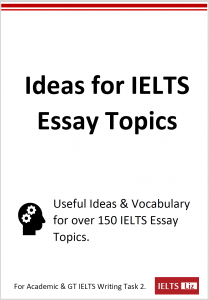Hi guys,
I wanted to let you know that my Android App is ready to be installed.
The app contains useful IELTS quizzes to test your understanding of the test. If you score under 70% in the quizzes, you should really spend more time learning about the test. One of the reasons that people struggle with IELTS is that they don’t fully understand it. So, do the quizzes today and test how ready you are.
The app also contains an easy gateway for you to access my website and my Youtube channel.
The app is called IELTS Liz.
Click here: IELTS Liz App
Iphone users: If this app is popular with Android users, I will consider making another app for you later on. Lets see how things go with this app first.
All the best
Liz






